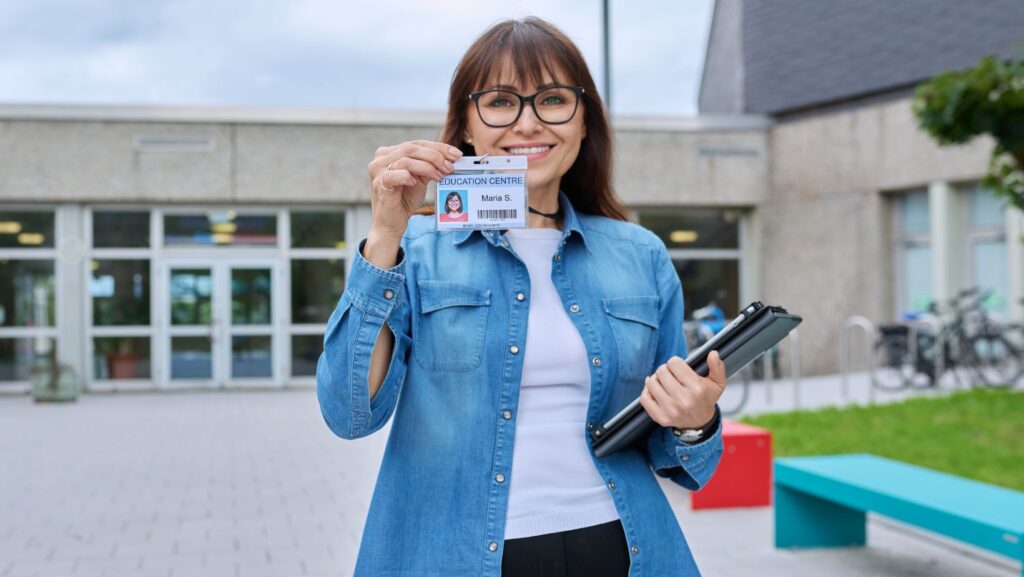
Digital badges are revolutionizing the landscape of education, offering a new way to recognize and showcase skills and achievements. In today’s digital age, traditional forms of credentialing are being complemented, and in some cases, replaced by these virtual tokens of accomplishment. These badges, earned through online platforms and learning experiences, provide learners with a portable and verifiable way to demonstrate their competencies to peers, educators, and potential employers. Educators are increasingly incorporating digital badges into their teaching practices to motivate students, track progress, and personalize learning pathways. As a result, the educational sector is witnessing a shift towards a more interactive and engaging approach to skill development and assessment.
Digital Badges In Education

Badges in education serve as powerful motivators for students. These badges offer tangible rewards for accomplishments, encouraging learners to set goals, engage with course material, and strive for excellence. By receiving badges for completing tasks or mastering skills, students feel a sense of achievement, boosting their confidence and driving them to pursue further learning opportunities. The clear visual representation of badges acts as a constant reminder of their progress, motivating students to stay focused and dedicated to their educational journey.
Recognizing Informal Learning
One significant advantage of digital badges is their ability to recognize and validate informal learning experiences. Traditional educational settings often overlook the knowledge and skills acquired outside the classroom. Digital badges fill this gap by acknowledging various informal learning activities such as online courses, workshops, volunteer work, and self-directed study. By awarding badges for these non-traditional learning paths, educators can provide a comprehensive picture of a student’s abilities and competencies, enabling them to showcase a diverse range of skills beyond formal academic achievements.
Types of Digital Badges
Achievement Badges

Achievement badges in education are earned by students upon successfully completing specific tasks, courses, or projects. These badges signify the accomplishment of milestones within a learning journey. For instance, a student may receive an achievement badge for finishing a coding project, passing a challenging exam, or reaching a certain level of proficiency in a foreign language. These badges serve as concrete evidence of the student’s dedication, effort, and success in mastering predefined academic or practical goals.
Skill Badges
Skill badges recognize and validate a learner’s expertise in particular areas of knowledge or practice. They highlight specific skills acquired by students through formal education, online courses, workshops, or experiential learning. For example, a student may earn a skill badge in data analysis, graphic design, or project management based on demonstrated proficiency in these domains. Skill badges offer a detailed breakdown of an individual’s competencies, enabling them to showcase their specialized skills to potential employers or academic institutions effectively.
| Types of Digital Badges | |
| Achievement Badges | Recognition of completed tasks or projects |
| Skill Badges | Validation of expertise in specific areas |
Implementing Digital Badges in Classrooms
Integration with Curriculum
Integrating digital badges into the curriculum is a strategic approach to enhance student engagement and motivation. By aligning badges with learning objectives, educators can provide learners with clear milestones to achieve while reinforcing the relevance of their educational journey. Incorporating badges into lesson plans offers a structured path for students to acquire knowledge and skills, leading to a more personalized and interactive learning experience.
Challenges and Solutions
Implementing digital badges in classrooms may come with challenges such as resistance to change from traditional assessment methods and concerns about the validity of badge criteria. However, these challenges can be overcome through effective communication of the benefits of digital badges to all stakeholders. Educators can ensure buy-in from students and parents by demonstrating how badges reflect a holistic view of a student’s capabilities and achievements. Additionally, transparent criteria and rigorous assessment processes can address concerns about the credibility of digital badges, instilling confidence in their value as a reliable measure of student proficiency.



